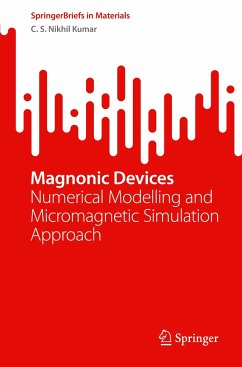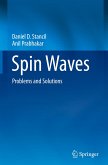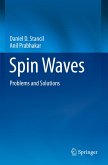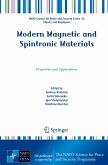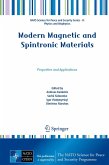This book briefly looks at numerical modeling and micromagnetic simulation results of magnonic crystals, which are periodically modulated magnonic devices regarded as the magnetic counterpart of photonic crystals with spin waves acting as the information carrier. Since the wavelength of the spin wave is several orders of magnitude shorter than that of electromagnetic waves of the same frequency, magnonic crystals are promising candidates for miniaturization, especially in the fields of data storage and processing. The book begins by describing the dispersion relation of dipolar spin waves in a magnonic curved waveguide, solving Walker's equation in cylindrical coordinates, and then calculating the dispersion of exchange spin waves using perturbation theory. It describes simulated nano-contact-driven spin wave excitations in a magnonic cavity, featuring a design of an antidot magnonic crystal around the nano-contact, with the frequency of the spin wave mode generated lying within the band gap of the magnonic crystal. The proposed device behaves as a SWASER-Spin Wave Amplification by the Stimulated Emission of Radiation. This book will find interest among researchers and practitioners interested in the modeling, simulation, and design of novel magnonic devices.
Bitte wählen Sie Ihr Anliegen aus.
Rechnungen
Retourenschein anfordern
Bestellstatus
Storno

